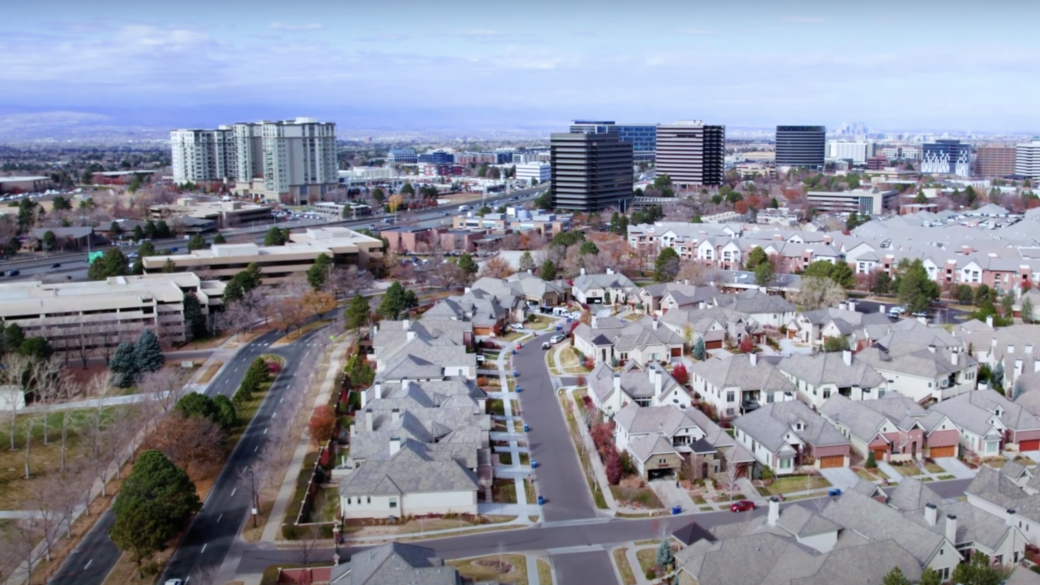Why is Denver so Expensive?
Denver, often referred to as “Mile High City” due to its elevated location, is a thriving urban center that has undergone significant development and transformation in recent decades. The convergence of its natural splendor, enticing amenities, and strategic positioning has sparked an influx of individuals eager to establish roots in Denver. This article discusses the 14 reasons why Denver is so expensive.
This growing popularity has resulted in a substantial increase in the expenses associated with residing in the city, effectively ranking it among the most costly urban centers in the United States. Various factors contribute to this phenomenon, and while some causes may be readily apparent, they collectively depict an attractive city where demand consistently exceeds supply.
In the following discussion, we will delve into these contributing factors, starting with the less conspicuous ones and concluding with the most influential driving factor behind Denver’s elevated cost of living.
14. Tech and Startup Boom
Tech companies and startups have boomed in Denver in recent years. Technology experts from the East and West coasts are drawn to the city’s innovation hub image. Because of this, a number of major players in the tech industry have opened satellite offices or even moved their main offices to Denver.
Take, for instance, Facebook’s 2018 revelation of inaugurating a new office in the city, a development that introduced well-compensated employment opportunities. The presence of these businesses raises the average income, which increases the need for housing and drives up both home prices and rents.
13. Recreational Activities and Lifestyle
Denver’s close location to the majestic Rocky Mountains makes it an ideal spot for nature enthusiasts. Skiing, hiking, mountain biking, and a range of outdoor activities are within quick reach. Also, the city itself features an array of parks, cycling routes, and green havens that promote an active lifestyle.
Individuals residing in Denver often say that the easy access to these outdoor attractions was a major factor in their decision to reside there. Take, for instance, the Cherry Creek Bike Path, a 40-mile trail that meanders through the heart of Denver, symbolizing the city’s dedication to furnishing residents with outdoor leisure opportunities.
This attraction makes more people want to buy homes in and around Denver, which helps drive up property values in the city.
12. Educational Opportunities
Denver houses esteemed educational institutions spanning from primary to higher education levels. Campuses like the University of Denver and University of Colorado Denver attract students nationwide. The city’s public schools are also known for their quality education, often placing first in national assessments.
For families, the prospect of a strong education for their children serves as a compelling attraction. Consider the Washington Park neighborhood, which is home to some of the highest-performing schools in the city.
Properties in desirable locations are in high demand, raising values and rents. This pursuit of quality education, coupled with the limited availability of properties in esteemed school districts, further compounds the overall cost of living in Denver.
11. Growing Cultural Scene
Denver extends beyond its mountainous landscapes and tech enterprises. The city has carefully created a vibrant cultural environment that appeals to a diverse population. Culture is central to Denver’s appeal, from the world-class Denver Art Museum to the vibrant music scene at Red Rocks Amphitheater.
Furthermore, various festivals, art strolls, and theatrical performances ensure that residents enjoy a variety of entertainment options throughout the year. A recent standout was the Denver Film Festival, an event that drew filmmakers and aficionados from all corners of the globe.
This flourishing cultural tapestry contributes to the city’s allure, enticing more individuals to yearn for a taste of life in Denver, subsequently intensifying the demand for residences and exerting upward pressure on housing costs.
10. Transportation Infrastructure
In tandem with Denver’s growth, its transportation infrastructure has seen significant expansion. The growing light rail system and road improvements have made city and outskirt commuting easier.
The Regional Transportation District has helped by expanding routes and improving bus service. An exemplar of this progress is the A-Line train service, which links downtown Denver to the Denver International Airport, simplifying travel.
These transportation alternatives have extended their reach to outlying areas, prompting an escalation in property values even in the suburbs as they become increasingly integrated with the city’s center.
9. Sustainability Initiatives
Denver’s dedication to sustainability and environmental stewardship has undeniably bolstered its increasing appeal. Urban farming and ambitious renewable energy goals are among the city’s green initiatives.
Notably, the Green Roof Initiative has mandated that large structures within the city incorporate green roofs or solar panels, exemplifying Denver’s unwavering commitment to a sustainable future.
Numerous residents and newcomers are drawn to this forward-thinking approach, admiring the city’s endeavors to craft a sustainable urban landscape. This admiration, combined with eco-friendly practices, has increased demand for sustainable homes and neighborhoods, raising the city’s cost of living.
8. Limited Land for Development
Denver faces geographic constraints that limit its growth. Development land is scarce due to the Rocky Mountains to the west and protected plains to the east. Due to this scarcity, Denver has a limited amount of construction land as housing demand rises. Thus, developers build more condos and townhouses vertically.
However, these solutions sometimes struggle to meet rising demand. The Stapleton area, once the site of Denver’s former airport, serves as a vivid illustration of how rapidly newly developed areas can become populated, given the city’s geographical confines.
This inherent limitation on land availability inevitably fuels the escalation of property prices, rendering Denver a more expensive place to call home.
7. Historical and Architectural Preservation
Denver works hard to preserve its architectural heritage. In Capitol Hill and Larimer Square, late 1800s and early 1900s buildings stand. The Landmark Preservation Commission of the city diligently labors to ensure the preservation of these buildings, shielding them from unbridled redevelopment.
While this commitment enhances the city’s character, it also means that there is a finite supply of residences in these highly sought-after areas. Notably, homes in the Highlands, with their timeless brick bungalows, often command a premium due to their historical significance.
This devotion to conserving the past, though laudable, indirectly contributes to the elevated property values in Denver’s historic districts.
6. Booming Tourism Industry
Denver’s allure extends beyond its residents. There has been a dramatic increase in the number of visitors to the city center over the past decade. Many beer enthusiasts from other states travel to Denver for the Great American Beer Festival because of the city’s thriving craft brewing community.
Short-term rental properties, including Airbnb listings, have increased due to tourists. This trend has reduced long-term housing availability and, as a result, increased competition and prices.
5. Rising Construction Costs
One of the more practical explanations for Denver’s costly real estate market is the escalating cost of construction. Materials, labor, and compliance with regulations have all experienced price hikes in recent times.
Notably, tariffs imposed on Canadian lumber, a fundamental construction resource, have led to elevated building expenses. Due to labor shortages, construction wages have risen, increasing developer costs. These increased costs are passed on to buyers and renters, raising the city’s cost of living.
4. Competitive Job Market with Higher Wages
Denver’s tech sector growth draws attention, but its job market is diverse and resilient. The healthcare, finance, and energy industries contribute to competitive pay. Notable companies like DaVita, a Fortune 500 healthcare provider headquartered in Denver, offer enticing compensation packages to their workforce.
This concentration of well-paying positions has cultivated a population with greater disposable income, which, in turn, amplifies the demand for luxury apartments, upscale homes, and premium amenities. When a large portion of a city’s residents can afford more housing, median home prices and rental rates rise.
3. Population Growth and Urbanization
Undoubtedly, one of the most immediate factors fueling Denver’s soaring expenses is its swift population expansion. Denver has consistently been one of the fastest-growing US cities for a decade. As an increasing number of individuals have pursued the prospects and lifestyle that Denver presents, the city’s infrastructure and housing market have grappled to manage this inflow.
This urbanization phenomenon, prevalent in many urban centers, is particularly conspicuous in Denver. With each new resident or family vying for a place in the Mile High City, the competition for accessible homes and apartments grows more intense, inevitably pushing prices to greater heights.
2. Limited Housing Inventory
Denver’s population growth, geographical restrictions, and conservation efforts have reduced housing inventory. The city struggles to generate a sufficient number of new residences and apartments to match the burgeoning demand. This disequilibrium between supply and demand sets the stage for classic price inflation.
Aspiring homeowners frequently find themselves entangled in competitive bidding wars, often offering prices well above the initial listings. Rentals encounter a parallel situation, with available units drawing numerous applications within a matter of days, if not hours, after being put on the market.
The scarcity of choices has bestowed a significant advantage on sellers and landlords, enabling them to command premium prices for their properties.
1. Strategic Location as a Central Hub
The reason Denver is so appealing, even though it has high living costs, is because of its strategic location. The city is a commercial, transportation, and communication hub at the intersection of the West Coast and Midwest. Denver International Airport, one of the nation’s busiest, shows the city’s importance in connecting regions.
Denver is also a major tourism and trade hub due to its Rocky Mountain gateway status. As businesses grasp the logistical benefits of establishing operations in Denver, they create hubs, attracting employees and, in turn, heightening demand and prices within the housing market.
Conclusion
Denver’s evolution into one of America’s most expensive cities is the outcome of a convergence of elements, encompassing its flourishing cultural offerings, the tech industry surge, geographical limitations, and its pivotal position as a central hub.
While the reasons are multifaceted, they collectively underscore a fundamental truth: Denver is a city in high demand. Its allure, whether in terms of professional prospects or quality of life, continues to attract a substantial number of people.
While popularity has brought prosperity and growth, it has also caused affordability issues. As Denver maps out its future, the crucial task lies in striking a balance between growth and inclusivity. For those contemplating making Denver their home, comprehending these dynamics is vital when navigating the vibrant yet competitive real estate landscape of the city.


